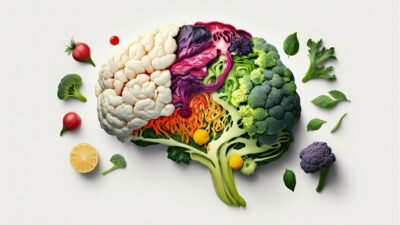Ask the RD: Food for Focus & Brain Function

“What foods can help me stay focused and heighten brain function?”
April is the month of the year when the warm weather finally arrives, a sign that the end of the semester is near. At CDS, we know that this time of year can be challenging as your brain is ready to transition to summer break. To help you stay on track and focus on your final assignments, we’ve created a list of foods that can help boost brain power and can be found in our dining halls. It is important to know that not one specific food can help improve brain function, but that a balanced diet including these foods will help improve overall health!
- Blueberries– Blueberries are high in flavonoids, a natural chemical compound found in plants, and have been linked to decreasing cognitive decline. Studies have shown that an intake of up to a third of a cup per day can protect your brain function and help prevent chronic disease. CDS offers blueberries at our Salad Bars (upon availability), in some bakery desserts, and in some of the smoothies.
- Broccoli– Broccoli is classified as a cruciferous vegetable. This group of vegetables is high in a compound called sulforaphane which has shown to be effective in reducing the risk of brain disease and inflammation. Sulforaphane helps enhance brain function because it can cross the blood-brain barrier, the network of tissues and blood vessels that protect the brain. Broccoli is part of our menu rotation at many of the stations at Chase and Top of Lenoir, so keep a lookout!
- Leafy greens– Leafy greens are high in vitamins, minerals and antioxidants that work to slow cognitive decline and protect the brain and body from chronic disease. This group of vegetables includes darker greens, such as spinach and kale, and lighter greens, such as iceberg lettuce and romaine. CDS offers spinach, spring salad mix, and iceberg lettuce at our Salad Bar stations so come by to customize your own greens bowl!
- Dark chocolate– Surprisingly, dark chocolate is considered a “brain food” due to its high content of flavonoids and polyphenols that work as antioxidants. Two studies have determined that eating dark chocolate regularly improved cognitive or memory tests. Remember though, everything in moderation! Dark chocolate also usually has a significant sugar and fat content so you should not eat large amounts per day, but you can include it in a balanced diet. CDS incorporates dark chocolate in many of our desserts at Chase and Top of Lenoir throughout the semester.